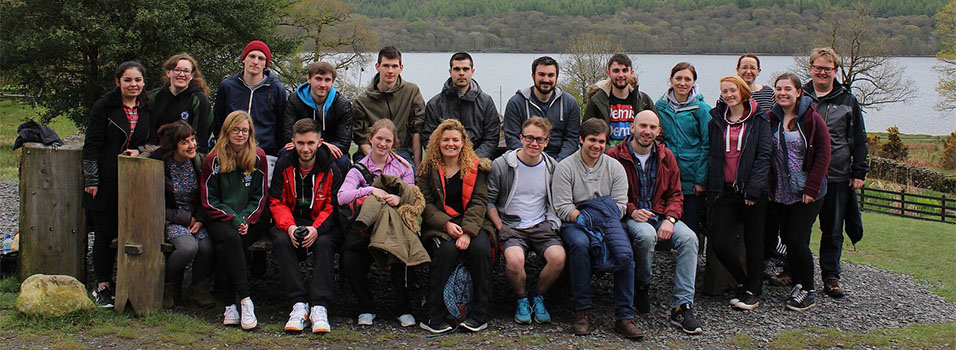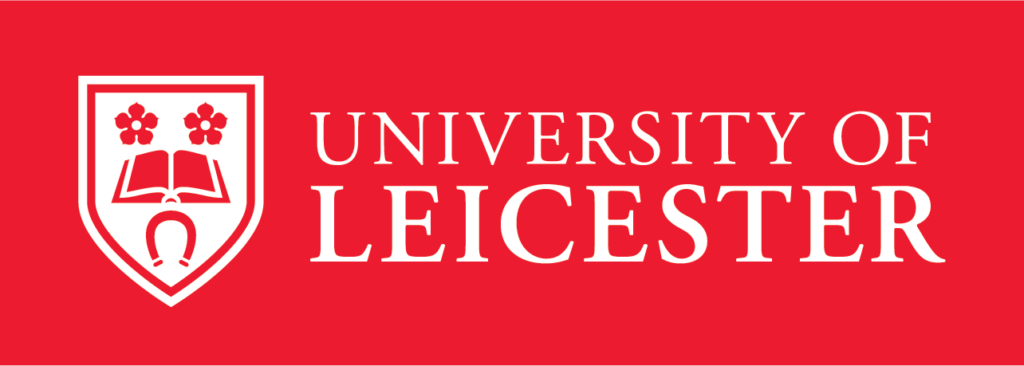Current Students

– Connect with current students on the MRC IMPACT programme
Shimon Atunde
Email: sa825@leicester.ac.uk
Heart failure is an epidemic affecting over 500,000 individuals in the UK alone with a prognosis as severe as many cancers. This prognosis can be improved with the identification of novel biomarkers. The aim of my project is to identify novel biomarkers for heart failure using a proteomic approach. My approach to tackling this issue involves the use of Liquid Chromatography – Mass Spectrometry (LC-MS) in a Selected Reaction Monitoring (SRM) format to identify proteins in blood plasma that can be used as possible biomarkers
Leah Banellis
Email: LXB681@student.bham.ac.uk
Leah is researching conscious electrophysiological responses to speech and interoceptive stimuli, in order to improve the prognosis and diagnosis of awareness in patients with disorders of consciousness. She is supervised by Dr Damian Cruse and Prof Antonio Belli.
Sohni Ria Bhalla
Email: Sohni.Bhalla@nottingham.ac.uk
Diabetics have an increased risk of cardiovascular disease due to the insufficient growth of collateral vessels. In non-diabetics this is not the case as the body responds by generating new blood vessels to circumvent the blockage. Vascular endothelial growth (VEGF) is the main regulator of blood vessel growth and consists of multiple isoforms: pro-angiogenic (e.g. VEGF-A165a) and anti-angiogenic (e.g. VEGF-A165b). Our aim is to pinpoint the mechanism that may change the production of VEGF isoforms in diabetics, allowing blood vessels to form. If the pathway is successfully identified, this could lead to a new treatment for cardiovascular disease.
Dan Bowden
Email: dgb15@leicester.ac.uk
D-type Cyclins play an important role in regulating the transition through the cell cycle as well as an important role in the development of B-cells. Cyclin D3 (CCND3) expression is frequently dysregulated in lymphomas and leukaemia. Exploration into the localisation of CCND3 in DLBCLs have highlighted an unexpected observation that some DLBCL cell lines express cyclin D3 predominantly in the cytoplasm, suggesting a CDK independent function that could explain that oncogenic function of Cyclin D3 in DLBCL development, an eventuality this project aims to explore, alongside exploring the regulation of CCND3 by intracellular compartmentalisation in B-cell malignancies
Sarah Brown
Email: pmxskb@nottingham.ac.uk
Project title: An in vitro and in silico study of altered airway smooth muscle and extracellular matrix structure and function in the remodelled asthmatic airway.
My research combines in vitro experimental work using Human Airway Smooth Muscle (HASM) cells and in silico mathematical modelling, in order to discover mechanisms of airway remodelling in asthma patients. These methods are used in complement in order to ultimately develop an accurate tool which could be used to identify new therapeutic targets.
Hayley Carr
Email: HLC711@student.bham.ac.uk
Rheumatoid arthritis (RA) is an inflammatory autoimmune disease that affects around 1% of the population. It has been shown that early treatment greatly improves patient outcome, resulting in less pain and disability long-term, however many RA patients present initially with undifferentiated arthritis (UA). Patients with UA have no clear diagnosis and some will resolve without treatment. My research aims to use RNA sequencing and histological scoring to predict disease outcome, allowing for earlier treatment of RA patients, while also identifying mechanisms that drive persistence versus resolution.
Chiamaka Chidomere
Email: CIC660@student.bham.ac.uk
I am a PhD student in the Institute of Immunology and Immunotherapy at the University of Birmingham, currently investigating the crosstalk between immune cells and stromal cells in peritoneal adipose tissues during infection and cancer. In particular, my research focuses on tertiary lymphoid structures embedded within omental and mesenteric adipose tissues called fat associated lymphoid clusters (FALCs)/milky spots. While FALCs aid in initiating immune responses during helminth infection, they are frequent sites of tumour metastasis. My research therefore aims to further understand these contrasting roles, and thereby how the FALC microenvironment can be manipulated to induce anti-tumour responses.
Sean Colbourn
Email: SIC613@student.bham.ac.uk
After completing my BSc in Psychology at the University of York I coordinated a research team in rural Uganda and subsequently undertook a Research Grants role at the University of Oxford in the Nuffield Department of Population Health and Surgical Sciences. Having an interest in consciousness research since my undergraduate degree, and a desire to peruse a career in academia, I embarked on a MSc in Brain Imaging and Cognitive Neuroscience at the University of Birmingham working in Dr Davinia Fernández-Espejo’s lab. Upon securing MRC funding I am now undertaking my PhD investigating the neural correlates of consciousness through the use of multimodal brain imaging and stimulation techniques.
Emma Cowan
Email: Emma.Cowan@nottingham.ac.uk
The aim of my PhD project is to characterise UBE3A, an E3 ubiquitin ligase enzyme, using a variety of biophysical techniques, such as AUC, SEC-MALLS, SAXS and CD, and to determine the full structure using Cryo-EM and/or X-ray Crystallography. I am also interested in putative binding partners for UBE3A, and hope to use similar techniques to characterise these interactions.
Results from this research will have potential for “real-world” impact, as UBE3A has been implicated in the neurodevelopmental disorder Angelman syndrome, as well as several cancers.
My project is supervised by Dr David Scott (UoN/RCaH), Dr Stephen Carr (Oxford University/RCaH), Dr Katie Cunnea (eBIC), and Prof Rob Layfied (UoN).
Paulina Durczak
Email: Paulina.Durczak@nottingham.ac.uk
I work in the laboratory of Dr Nick Hannan at the University of Nottingham, Department of Stem Cell Biology. I work on investigating the roles of long non coding RNAs (lncRNAs) in the development of endodermal organs. I use induced pluripotent stem cells as a model of early human development and next generation sequencing to identify non coding genes important in development. I also investigate the molecular mechanism by which lncRNAs exert their function.
Ryan Gangloff
Email: Ryan.Gangloff@nottingham.ac.uk
Antibiotic resistance is a major cause for concern and necessitates the discovery of new treatments for bacterial infections. Teixobactin is a naturally occurring antimicrobial peptide that has shown potent activity against gram-positive bacteria. The compound has a unique mode of action, binding to both lipid II and lipid III. This inhibits peptidoglycan synthesis and liberates autolysins that degrade the cell wall. My project focuses on the use of solid phase peptide synthesis to make teixobactin analogues. These are tested in antimicrobial assays against gram-positive bacteria, including the anaerobic C. acnes, to decipher structure-activity relationships
Clare Harwood
Email: Clare.Harwood@nottingham.ac.uk
Clare graduated with an MSci in Pharmacology from the University of Bristol. Her PhD is at the University of Nottingham with Professor Dmitry Veprintsev within the Cell Signalling group. Her project is focused on understanding G protein coupled receptor (GPCR) activation and signalling in response to different drugs. GPCRs are an important group of receptors as they are targets of approximately 30% of all marketed drugs. An increased understanding of the molecular basis of ligand efficacy at GPCRs could help better exploit these drug targets.
Jack Holman
Email: Jack.Holman@nottingham.ac.uk
I am student based at University of Nottingham Hearing Sciences – Scottish Section (Glasgow Royal Infirmary) researching the link between hearing loss, hearing aid fitting and fatigue. People with a hearing loss have to expend extra effort in conversation, which can be a drain on energy. Through qualitative and longitudinal methodologies I am investigating the impact that hearing loss has on the fatigue experienced in everyday life, whether this has a bearing on work and social activity, and what effect if any hearing aid fitting has on fatigue and daily activity.
Kinga Kolodziej
Email: kmk20@leicester.ac.uk
My PhD project is being supervised by Prof. Flaviano Giorgini, at the University of Leicester. I’m working with the fruit fly Drosophila melanogaster as a model organism to study neurodegeneration. My research aims to investigate the interplay between two key players in neurodegeneration – the kynurenine pathway and the tau protein – in the hopes of gaining a better understanding of the mechanisms responsible for pathogenesis in neurodegenerative disorders such as Alzheimer’s and Parkinson’s. By doing so we hope to identify potential therapeutic targets and improve the scope of treatments for these devastating conditions, which at the moment are very limited.
Greg McCallum
Email:GEM528@student.bham.ac.uk
Greg attained a First class BSc (Hons) Biomedical Science degree at the University of Birmingham before starting his PhD. His research investigates the human gut microbiome as a reservoir for antimicrobial resistance (AMR). Using a combination of proximity ligation and culturing techniques, Greg aims to characterise the bacterial hosts of AMR genes in human gut microbiome samples. This will help to find the extent to which commensal bacteria in the gut can carry AMR genes, and whether they can then be transferred to opportunistic pathogens that enter the microbiome.
Kamini Magon
Email: KLM890@student.bham.ac.uk
Oncogenic human papillomavirus (HPV) strains are responsible for causing almost 5% of cancers worldwide. HPV-driven cancers can develop in individuals who have persistent oncogenic HPV infection. My PhD is focused on HPV18 and how it manipulates transcriptional and metabolic networks of the host to facilitate its life cycle. I am using cutting-edge techniques to identify these changes in the host using a model system. I am hoping to uncover new mechanisms the virus uses to survive in the host as this can *potentially* lead to novel methods of treating persistent infection.
Philip Morrison
Email: PRM359@student.bham.ac.uk
I am a student based within the institute of Cardiovascular Sciences and, at the heart, my research is focused on investigating the role of a specific protein complex in atherosclerosis and developing novel anti-atherogenic blocking agents based on this complex. However, the role of a scientist is not purely restricted to the laboratory and training sessions designed to nurture broader skill bases are commonplace in the MRC IMPACT DTP programme, such as learning how to cope with stress, networking at conferences, communicating effectively, and working within teams alongside people from differing backgrounds
Thomas O’Sullivan
Email:TJO735@student.bham.ac.uk
The invaginated membrane system (IMS) is an internalised reservoir of lipid membrane within late stage megakaryocytes that provides cell membrane mass for the generation of platelets. IMS development and maturation is intimately linked to actin cytoskeleton function, with dysregulation of the actin cytoskeleton leading to defects in IMS maturation and abortion of platelet production. However, the relationship between actin cytoskeleton and IMS is not fully understood, and many of the key regulatory proteins are yet to be identified. The aim of my PhD is to visualise actin dynamics throughout megakaryopoiesis using light-sheet, confocal, and epi-fluorescent imaging. Subsequently, we begin to dissect the role of actin, and the actin regulatory proteins: formins, and the Arp2/3 complex at different stages of IMS development.
Samantha Pendleton
Email: SCP887@student.bham.ac.uk
Across Biobanks in the UK there lacks clinical annotation, resulting in millions of samples that remain unused. There needs to be better standards linking patient information to tissue samples and conversion of data types: allowing biomedical benefits. I am creating an AI-based data assistant to bridge metadata: building synonyms to link primary clinical data to biobank samples. I am utilising AI technologies in the fields of text mining and semantic interoperability in terms of how biomedical data can be better represented and to develop a health research information environment amenable to data mining.
Lillie Purser
Email: lfp10@leicester.ac.uk
After completing my BSc (Hons) degree in biology at the University of Portsmouth, I began an MRC IMPACT funded studentship at the University of Leicester, researching the interaction of air pollution, respiratory pathogens and the microbiota and their effects on chronic obstructive pulmonary disease (COPD) exacerbation.
Air pollution is the single largest environmental health risk worldwide. Particulate matter (PM) air pollution is released as a result of fossil fuel combustion and vehicle motion, breaking and tyre wear. It has been shown that exposure to air pollution, specifically PM, can cause increased levels of respiratory disease, including the exacerbation of COPD, which is most frequently associated with bacterial infection. While the health consequences of air pollution exposure on human cells is well characterised, the effects of air pollution exposure on COPD associated respiratory bacteria are largely unknown. Currently, my research focusses on Haemophilus influenza, Moraxella cattarhalis and Streptococcus pneumoniae, the three pathogens most frequently associated with COPD exacerbation which are also natural inhabitants of the respiratory tract microbial flora.
Oliver Ratcliffe
Email: OXR772@student.bham.ac.uk
Oli is a PhD student at the University of Birmingham funded by the MRC IMPACT-DTP. Over the course of his project, he plans to make use of electrical stimulation techniques to intervene in specific memory processes. Working memory maintenance and sleep-dependent consolidation of long term memories are of particular interest as both of these forms of memory are disrupted as a consequence of healthy ageing. The project will investigate whether non-invasive brain stimulation could be a means to improve cognitive outcomes as people age, as well as teaching us more about the underlying neural basis of these forms of memory.
Joe Redshaw
Email: Joseph.Redshaw@nottingham.ac.uk
My research sits at the crossroads between chemistry and computing. Artificial Intelligence (AI) has proven to be an invaluable tool in a wide variety of fields and my project aims to recognise whether the same can be said when applying AI techniques to the area of synthesis prediction. My current work focuses on using the constituents of a chemical reaction to predict the yield. The main approach I have taken is to rank reactions in terms of their yield. That is, given a set of chemical reactions, can we predict which reaction will provide the greatest yield?
Katherine Stephenson
Email: katherine.stephenson@nottingham.ac.uk
With a median life expectancy of three years from diagnosis, the prognosis for patients with idiopathic pulmonary fibrosis (IPF) is poor. Characterised by the excessive deposition of extracellular matrix by fibroblasts, IPF is a chronic, progressive, interstitial lung disease (ILD) with limited treatment options. Recently, the cytokine Interleukin-33 (IL-33) has been implicated in the pathogenesis of IPF however the cellular and molecular mechanisms underlying this involvement remain largely unknown. Consequently, the aim of my PhD project is to determine the role that IL-33 plays during the development of IPF.
Lauren Terry
Email: LVT829@student.bham.ac.uk
The liver’s function in chemical detoxification leaves it open to continuous injury in health, which becomes more damaging in inflammation. Hepatocytes exist as non-dividing quiescent cells that drive regeneration during injury, in ways that are poorly understood. In end-stage liver disease (ESLD), hepatocytes become senescent and cell division is perturbed. We have built a model to study human hepatocyte regeneration following thermal injury, using liver wedges ex vivo from donor and ESLD. I am using this model to identify pharmaceutical agents that have an effect on regeneration or senescence in order to decipher which agents to elucidate further.
Aimee Vaughan
Email: av172@leicester.ac.uk
I am currently working at Leicester cancer research centre completing a PhD under the supervision of Professor Catrin Pritchard. My current research is focusing on further understanding the tumour microenvironment and the response to anti-cancer drugs in lung and skin cancer. The project will utilise digital pathology and a patient derived explant platform. An Insilco approach will be used to determine highly expressed cytokines in the cancers. The cytokines will then be monitored in the patient explants using immunofluorescence imaging.
Shaun Warrington
Email: shaun.warrington@nottingham.ac.uk
I am currently working at the School of Medicine (University of Nottingham) completing a PhD under the supervision of Dr Stamatios Sotiropolous. My current research focusses on using diffusion MRI and resting-state functional MRI to investigate how measures of brain connectivity are associated with behaviour and genetics. This work uses superb quality MRI data from the Human Connectome Project (HCP). Using state-of-the-art computational modelling techniques and advanced statistics, we hope to unravel the associations between brain connectivity and behaviour and explore the heritability of brain connectivity.
Alice Waitt
Email:alice.waitt@nottingham.ac.uk
Attention is a vital cognitive process for day-to-day functioning; however attention can be impaired in a range of neuropsychiatric and neurodevelopmental disorders. The focus of my PhD is to investigate therapies modulating attention in these disorders. Interventions we have explored to improve inhibitory control include using the ‘RECOGNeyes’ gaze-control training game and transcranial direct current stimulation. We used agnetoencephalography and magnetic resonance imaging techniques to measure brain changes in individuals with attentional problems. If successful, these interventions could be used in the future to improve outcomes and quality of life in individuals with attentional problems (e.g. use at schools).





